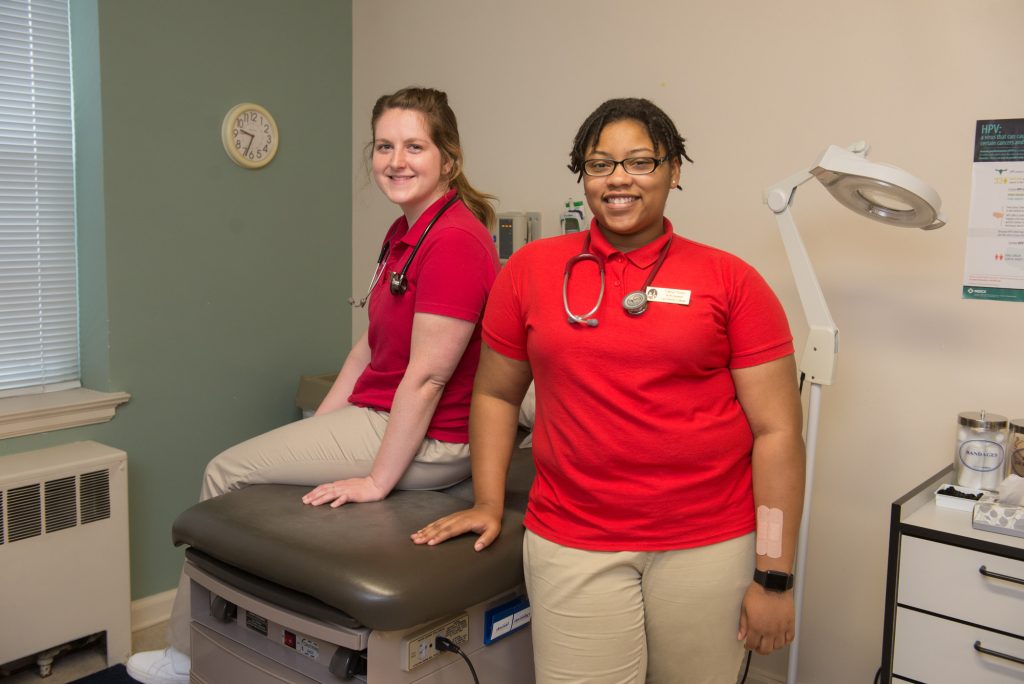Nursing students at the University of Lynchburg are shadowing nurses at the campus health center and doing presentations for the student body about various health-related topics. These opportunities give the nursing students practical experience in a community health setting.
“The nursing student works alongside the nurses in the health center to deliver care to the campus community,” Jill Foster, associate professor of nursing and simulation coordinator, said. “They are completing assessments, in-house laboratory procedures, and engaging in health promotion and disease-prevention activities. This experience allows our students to apply what they are learning in the classroom setting to the actual campus community.”

Jillian Little ’19 did her rotation in the health center last week. While she didn’t participate in visits that were of a sensitive nature, with permission of students Little said she was “able to see some of the services that the health center provides. I took vital signs — blood pressure, temperature, heart rate, etc. — and was able to provide therapeutic communication to students that were feeling uneasy about their visit. Also, I was able to familiarize myself with the documentation the registered nurse provides in this setting.”
Health center staff have been mentoring Lynchburg’s nursing students for years, but the shadowing component is new this fall. “This clinical placement gives our nursing students the ability to see how community nursing would work in a broader, larger community,” Heidi Satterfield, a college health nurse, said. “Participation in this clinical is allowing them to apply the concepts they are learning in the classroom.”

On Thursday, September 13, Little and Lawryn Davis ’19 will team up for a presentation about stress management. They will have a table set up on the third floor of Drysdale Student Center from 10 a.m. to 2 p.m., complete with giveaways, snacks, and useful information about dealing with stress.
“We are targeting the whole student body, since Drysdale is a high-traffic area, but we do want to make sure we appeal to the freshmen since college is a new experience to them and it can be overwhelming,” Davis said.
Little added that she hopes students will open up to them about what’s causing them stress so they can suggest techniques and resources for dealing with it. “I think stress management is particularly important for our peers because it is vital for our health to not be stressed long term, which we plan to discuss in our presentation,” she said.
“It’s imperative for the University’s students to be aware of the resources that are on campus. All of the resources we have included are ones that Lawryn and I have personally used or have heard positive things about from our peers.
“I hope our presentation will reassure students that they are not alone and they will get through stressful times and situations. My goal is for the students to learn one new method to use to decrease stress and that they will try to incorporate the method in their lifestyle.”
Over the coming weeks, nursing students will present on other topics as well, including vaccines and sexually transmitted diseases. Some students will help promote the fall flu vaccine clinic. “The nursing students get to choose to whom and how they want to present the information,” Satterfield said. “We encourage them to connect with other groups and offices on campus to coordinate and promote their presentation.
“We guide the students, but they research the topic and come up with the creative presentation. This will model what they would be doing in a community health clinic in practice. … Preventative health promotion is a large part of keeping a community healthy. This is especially important in a campus setting because the students are living in this micro-community.”


